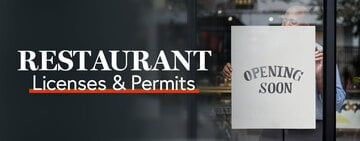
As a restaurant owner or manager, understanding and complying with labor laws is essential to avoid costly penalties and ensure a fair and safe work environment for your employees. From minimum wage requirements to overtime regulations, there are various laws and regulations that govern the employment practices within the restaurant industry. By familiarizing yourself with restaurant labor laws and implementing proper policies and procedures, you can create a positive work environment for your employees that reduces turnover and protects your business from potential liabilities. In the following sections, we look deeper into specific labor laws that affect the restaurant industry and provide guidance on how to ensure compliance in your establishment.
Restaurant Wages and the Fair Labor Standards Act
Many restaurant labor laws come from the Fair Labor Standards Act (FLSA), an act originally signed by Franklin D. Roosevelt in 1938. This act explains the standards set for full-time and part-time workers in the private sector and federal, state, and local governments. The FLSA establishes minimum wage, overtime pay, recordkeeping, and child labor standards for businesses in the foodservice industry to aid in restaurant employee rights. Below are the FLSA requirements:
- Minimum revenue for subjection - An establishment's annual gross sales must total at least $500,000 to be subject to FLSA rules and regulations
- Minimum wage requirement - Entitles non-exempt workers to the federal minimum wage of $7.25 per hour unless an individual state's law requires a higher wage
- Deductions and minimum wage - Deductions for cash shortages, required uniforms, or customer walk-outs are illegal if they drop the employee's wage below the minimum wage
- Tips and minimum wage - Tips may be considered part of wages, but the employer has to pay no less than $2.13 an hour and also make sure that the tips and wages add up to at least the minimum wage
- Overtime - Employees who work overtime are to be paid one and one-half times their regular rate of pay for each hour over 40 hours per week
- Overtime and tips - Tipped employees who work overtime are to be paid one and one-half times the applicable minimum wage, not one and one-half times $2.13
- Youths and minimum wage - Youth employees under the age of 20 may be paid a minimum wage of no less than $4.25 an hour during the first 90 days of their employment
Restaurant Tips and Bookkeeping

While the FLSA outlines parameters for legal wage and tipping practices, ensuring that your servers are earning at least minimum wage with tips can sometimes cause bookkeeping complications. Depending on the size of your staff and the volume of your customers, tracking your employees' tips can be a daunting task. Here are some things to keep in mind:
- If restaurant tips are not accurately counted or reported, employers could face fines related to improperly distributed pay.
- Carefully consider which pay strategy works best for your establishment.
- Failure to comply with federal wage laws could result in legal action from employees and potentially cost your business more time and money than a fair wage practice would.
- For more information on the minimum cash and tipped wage in your state, check out this data from the United States Department of Labor.
Employing Youths or Minors
Under FLSA guidelines, there are several provisions that business owners must follow in regards to employing minors. Each age group below has its own requirements to properly follow restaurant labor laws:
- 13 years old and younger - Minors that are 13 years old or younger may not be employed unless employment falls under an approved exception. Parents or guardians may employ their own children in non-hazardous occupations under this exception. To learn more about minor employment exceptions, visit the U.S. Department of Labor website.
- 14 and 15 years old - These minors may be employed in non-hazardous occupations for no more than 3 hours on a school day and 18 hours in a school week. Hours may not begin before 7 a.m. or end after 7 p.m. Outside of school hours, they may work 8 hours on a non-school day and 40 hours in a non-school week. Hours are extending to 9 p.m. from June 1st to Labor Day.
- 16 and 17 years old - Minors that are 16 or 17 years old may perform any non-hazardous job for an unlimited amount of hours.
Hazardous vs. Non-Hazardous Jobs for Minors
There are both hazardous and non-hazardous duties in every food service establishment. Minors under the age of 18 are not permitted to perform any hazardous tasks, which includes coming into contact with cooking equipment that could potentially cause an injury. However, there are several non-hazardous jobs that minors can perform safely to stay in line with restaurant labor laws. Here are some examples of hazardous and non-hazardous job duties:
Hazardous Jobs
- Using bakery equipment
- Operating meat-processing equipment
- Operating or maintaining power-driven equipment like slicers, grinders, mixers, etc.
Non-Hazardous Jobs
- Cashier and bagging duties
- Cleaning fruits and vegetables
- Dishwashing
- Light-duty cooking
The Occupational Safety and Health Act (OSHA)

OSHA was passed in 1970 to create healthier, safer working environments through training, outreach, education, and assistance. OSHA requires that all employers:
- Provide a hazard communication program for employees
- Train employees properly to prevent accidents
- Provide necessary protective equipment
- Have access to a first aid kit
- Display employee management and compliance forms from the Department of Labor or their state labor department that inform employees of their protections and rights
OSHA-Approved State Plans
OSHA also permits states to submit their own safety plans for approval. These plans are monitored by OSHA and must be successful at protecting employees and preventing accidents.
The following states have plans that cover both private sector and state and local government workers:
- Alaska
- Arizona
- California
- Hawaii
- Indiana
- Iowa
- Kentucky
- Maryland
- Michigan
- Minnesota
- Nevada
- New Mexico
- North Carolina
- Oregon
- Puerto Rico
- South Carolina
- Tennessee
- Utah
- Vermont
- Virginia
- Washington
- Wyoming
Connecticut, Illinois, Maine, New Jersey, and New York operate under an OSHA-approved plan that covers state and local government only. All other states operate under a federal OSHA-approved plan that covers most private-sector workers but no state or local government employees.
The Equal Employment Opportunity Commission
This commission reviews cases of discrimination and enforces the federal laws that make it illegal to discriminate against job applicants or employees based on the following:
- Race, color, religion, sex (including pregnancy), national origin, age (40 or older), disability, or genetic information
- A complaint about discrimination on an employee's behalf
Laws Enforced by the EEOC
You are required to display a poster with information about federal employment discrimination laws so that it can be seen by all employees. Here are some laws that are enforced by the EEOC that may be relevant to your restaurant workplace.
- The Equal Pay Act of 1963 - makes it illegal to pay different wages to men and women if they perform equal work in the same workplace.
- Title VII of the Civil Rights Act of 1964 - outlaws discrimination based on race, color, religion, national origin, or sex. The law also makes it illegal to retaliate against someone for filing a charge, complaining of, or taking part in a lawsuit or investigation of discrimination. Title VII also forbids discrimination based on sexual orientation or gender identity and these protections apply regardless of state or local laws.
- The Age Discrimination in Employment Act of 1967 - protects people 40 and older from discrimination based on age.
- Sections 501 and 505 of the Rehabilitation Act of 1973 - makes it illegal to discriminate against a qualified person with a disability in the federal
- The Pregnancy Discrimination Act of 1978 - outlaws discrimination because of pregnancy, childbirth, or a medical condition related to childbirth.
- Title I of the Americans with Disabilities Act of 1990 - makes it illegal to discriminate against a qualified person because of a disability in both the public and private sectors.
- Sections 102 and 103 of the Civil Rights Act of 1991 - permits jury trials and monetary damage awards in intentional discrimination cases.
- The Genetic Information Nondiscrimination Act of 2008 - makes it illegal to discriminate against employees or applicants based on their genetic information that might identify family members, disease information, or disorders and conditions in the family's medical history.
Restaurant labor laws are crucial for ensuring fair treatment of employees and compliance with legal regulations. By understanding and following these laws, restaurant owners can protect their businesses from potential lawsuits, penalties, and reputational damage. It is important to stay informed about labor laws at the federal, state, and local levels to maintain a safe and lawful work environment. Additionally, implementing proper record-keeping practices and providing employee training on labor laws can help prevent violations and promote a positive workplace culture.





